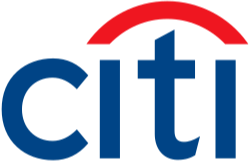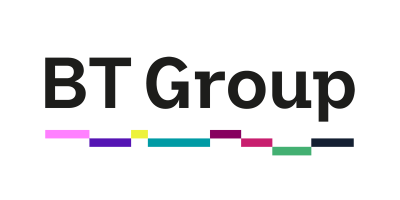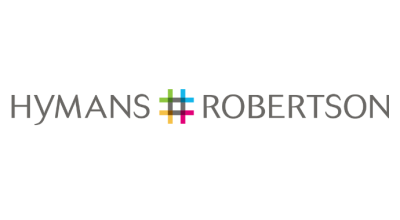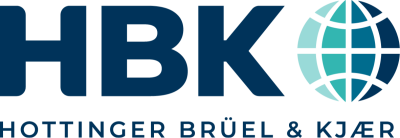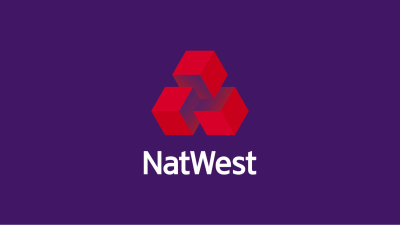Conference Day One - Tuesday 14th April
Morning Plenary Session
8:00 am - 8:45 am
Registration & Breakfast
8:45 am - 9:00 am
Chairs Opening Remarks
8:30 am - 9:00 am
Morning Plenary Panel Discussion: The AI-Native Enterprise - From Readiness to Reality
Daniel Hulme -
Chief AI Officer,
WPP
Perry Philipp - Chief Data Officer, Entain
Building an AI-ready enterprise is no longer enough, the leaders in 2026 are AI-native, integrating autonomy into core operations. This panel brings together executives driving structural, cultural, and governance shifts to enable orchestrated AI ecosystems.
• Redesigning operating models for AI-native agility
• Embedding literacy and fluency across every business unit
• Balancing speed, compliance, and trust in transformation initiatives
Gain a blueprint for evolving from readiness to fully AI-native operations.
9:00 am - 9:30 am
Session details to be announced
9:30 am - 10:00 am
Morning Plenary Keynote: Keynote Presentation: Scaling AI for Public Good – The Met Office Journey
Kirstine Dale -
Chief AI Officer,
Met Office
As one of the UK’s most visible public sector organisations, the Met Office has long been at the forefront of using technology to improve forecasting, resilience, and public safety. Now, with artificial intelligence embedding at scale, the organisation is shaping a new era of weather prediction and climate science. This keynote will highlight how it is harnessing cutting-edge AI while staying true to its purpose of deliver our purpose Helping you make better decisions to stay safe and thrive. Attend Kirstine's keynote to delve into:
• Embedding machine learning into weather prediction to strengthen accuracy and reliability.
• Scaling AI responsibly across critical public services with transparency and trust.
• Building diverse teams to realise the benefits of AI.
10:00 am - 10:30 am
Morning Plenary Keynote: From Innovation to Institution: Building a GenAI Function at the BBC
Jon Howard -
Head of Generative AI,
BBC
In a publicly funded organisation like the BBC, innovating at the speed of AI requires more than enthusiasm - it demands rigour, vision, and systems that can turn creativity into capability. As Head of Generative AI, Jon is helping the BBC establish a GenAI Hub: a function designed to enable safe, meaningful and scalable adoption of generative AI across editorial, production, and operations.
This session will explore what it takes to move from isolated experiments to organisation-wide capability. Using examples such as the Bitesize AI Tutor prototype, as well as emerging work in journalism and production, Jon will delve into case studies and unpack how the BBC is building the frameworks, partnerships, and governance needed to deliver value responsibly.
Key themes:
• From pilots to platforms: how early prototypes inform strategy without overpromising product launches
• Unlocking value in the newsroom and production: incubating agentic tools for journalism, content creation, and cross-platform efficiency
• Balancing safety and speed: lightweight triage and risk processes that enable rapid but responsible experimentation
10:30 am - 11:00 am
Morning Coffee Break
Morning Streamed Sessions
Stream A – Strategy & Transformation
11:00 am - 11:30 am Presentation/Case Study: Scaling GenAI at Citi: Smart Assistants, Real Impact & Enterprise Transformation Ramy Erfan - Vice President, Business & Technology Transformation, CitiAt Citi, GenAI is a core enabler of transformation, not a side project. An advanced digital assistant is already boosting operational efficiency by 25%, supported by modernised infrastructure and workforce adoption.
• Delivering 25% uplift in financial accounting efficiency
• Modernising infrastructure for scalable GenAI solutions
• Upskilling teams to enable enterprise-wide adoption
Stream A – Strategy & Transformation
11:30 am - 12:00 pm Presentation/Case Study: AI at Global Scale: Innovation, Governance & Portfolio Strategy at the British Council Andrew Horton - Exec Board Director Director of Digital & Global Tech, Partnerships & Innovation, British CouncilWith a presence in 200+ countries, the British Council is embedding AI responsibly into global programmes. This session highlights balancing growth, risk, and delivery across arts, education, and skills.
• Managing AI as a portfolio across diverse global programmes
• Building adaptive AI products for learning and operations
• Embedding IP, risk, and cyber security into innovation

Andrew Horton
Exec Board Director Director of Digital & Global Tech, Partnerships & InnovationBritish Council

Stream A – Strategy & Transformation
12:00 pm - 12:30 pm Presentation/Case Study: Operationalising Agentic AI with Confidence - From AI Experiments to Trusted Enterprise Agents Nick Jewell - Senior Solutions Engineer, Dataiku- Designing deterministic agent flows with explicit logic, guardrails, and structured handoffs
- Embedding human approvals and escalation paths directly into high-impact workflows
- Validating agent performance continuously using repeatable evaluation and SME review
Stream A – Strategy & Transformation
12:30 pm - 1:00 pm Panel Discussion: Enterprise Transformation in the AI Era - Operating Models & Mindsets Ghanasham Apte - Head of Data Science, BT GroupDavid Vinagre Solans - Head of Data Science, Santander
Elettra Damaggio - Director Internal Data Science, Visa
AI is reshaping business models, governance, and culture. This panel explores how enterprises are embedding AI into core functions and aligning with regulation to drive long-term transformation.
• Designing AI-enabled operating models for agility and resilience
• Managing workforce shifts and building literacy at scale
• Aligning transformation with regulatory and ethical standards
Stream B – Agentic AI
11:00 am - 11:30 am Presentation/Case Study: Rewriting the Rules: Agentic Coding & the Future of Software Delivery Daniel McMahon - Partner - Head of Technology & Innovation, Hymans Robertson Personal WealthHymans Robertson is trialling multi-agent workflows in software delivery, from requirement gathering to deployment. This session explores governance challenges and how agentic coding is reshaping development lifecycles.
• Delivering software through end-to-end agentic workflows
• Navigating governance and human oversight in coding agents
• Driving adoption with literacy and community enablement
Stream B – Agentic AI
11:30 am - 12:00 pm Presentation/Case Study: Scaling Agentic Analytics: Inside Zurich’s First Wave of Live Deployments Madhur Hemnani - Head of Data Strategy and Data Governance, Zurich InsuranceZurich is deploying agentic analytics across global units, from claims tools to enterprise hackathons. With use cases already in production, this session explores how trust and validation underpin adoption.
• Deploying agentic analytics for global claims performance
• Running hackathons to identify enterprise use cases
• Building trust through validation and human-in-the-loop design
Stream B – Agentic AI
12:00 pm - 12:30 pm Talk details to be announced David Fearne - VP of AI, NTT DataStream B – Agentic AI
12:30 pm - 1:00 pm Panel Discussion: The Economics of Autonomy - Scaling Agentic AI Across the Enterprise Robert Chilvers - VP Data & AI, dLocalDetlef Nauck - Distinguished Engineer and Head of AI & Data Science Research, BT
Laura Scavino - AI Director, NTT Data
Natasha Sarin - Lead Product Owner - Natural Language Engineering & Generative AI, Lloyds Banking Group
Agentic AI promises productivity gains but comes with significant costs. This panel unpacks the economics of scaling autonomy and how to build ROI strategies that work.
• Building the business case for agentic adoption
• Managing compute, storage, and operational costs
• Unlocking value through orchestration and cross-functional scale

Natasha Sarin
Lead Product Owner - Natural Language Engineering & Generative AILloyds Banking Group

Stream C – Data
11:00 am - 11:30 am Presentation/Case Study: Talk Details to be Announced Antonio López González - Chief Data Officer (Spain), DecathlonStream C – Data
11:30 am - 12:00 pm Presentation/Case Study: Case Study/Presentation: From Data Foundations to Real ROI: Operationalising AI in Real Estate Will Cohen - EMEA Exec Director of Technology, JLLJLL has transformed millions of property and lease data points into scalable AI solutions. This session shows how robust foundations drive ROI and operational safety in real estate.
• Building reliable data foundations for AI adoption
• Turning insights into savings, safety, and better decisions
• Embedding governance and security for trusted innovation
Stream C – Data
12:00 pm - 12:30 pm Session details to be announcedStream C – Data
12:30 pm - 1:00 pm Panel Discussion: Powering Agentic AI with Data - Building the Foundation for Autonomy Charlotte Bemand - Director of Digital Futures, HBKGerman Faraoni Heidenreich - Global Director, IT & Digital, Reckitt
Mattia de Dominicis - SVP, Head of R&D and Innovation, Imperial Brands
Chris Lowe - Head of Solution Consulting EMEA, Reltio
Agentic systems need clean, interoperable data to operate safely. This panel explores how enterprises are adapting architectures and governance to support autonomous decision-making.
• Building data architectures for multi-agent systems
• Enabling real-time orchestration and interoperability
• Embedding governance for safe and auditable operations
Lunch
1:00 pm - 2:00 pm
Lunch
Afternoon Streamed Sessions
Stream A – Strategy & Transformation
2:00 pm - 2:30 pm Presentation/Case Study: Leadership in the Age of AI - Building Human-Centred Governance and Skills Irina von Rosén - Chief AI Scientist, FugroAI isn’t just transforming engineering processes - it’s reshaping how teams, leaders, and organisations operate. For large multinationals, the real challenge is less about connecting to an API and more about equipping people to work alongside intelligent systems in meaningful, sustainable ways. In this keynote, Irina shares lessons from Fugro and other highly regulated industries on what it takes to lead responsibly in the age of AI.
• Upskilling workers to collaborate effectively with AI systems, not compete against them
• Helping senior leaders make informed AI decisions beyond hype and headlines
• Building human governance structures that complement technical and regulatory controls
Stream A – Strategy & Transformation
2:30 pm - 3:00 pm Presentation/Case Study: How to Scale Your AI Tooling, Design & Architecture: People, Platform, Process Neil Thewlis - Head of AI and Model Transformation, HSBCHSBC is building AI architectures that scale across people, platforms, and processes. This session explores how to balance quick wins with long-term adaptability.
• Leveraging people, platforms, and processes to drive scale
• Designing AI with re-useability and open standards
• Aligning architectures with business and regulatory needs
Stream A – Strategy & Transformation
3:00 pm - 3:30 pm Session details to be announcedStream A – Strategy & Transformation
3:30 pm - 4:00 pm Roundtable Discussion: Scaling AI Transformation - Lessons from the FrontlineJoin your peers to discuss practical approaches for scaling AI across multiple business units, overcoming resistance, and embedding continuous improvement into your transformation strategy.
• Prioritising business-critical workflows for agentic automation
• Navigating stakeholder alignment and organisational resistance
• Establishing feedback loops for iterative improvement
Explore actionable strategies for delivering AI transformation beyond the pilot stage.
Stream B – Agentic AI
2:00 pm - 2:30 pm Presentation/Case Study: Agentic AI Risk Management – the New Frontier Paul Dongha - Head of AI Strategy & Responsible AI, NatWestDavid More - AI Program Director, NatWest Group
NatWest is reimagining risk frameworks to govern AI systems capable of autonomous decision-making. This session explores how to safeguard trust, ethics, and accountability in agentic environments.
• Auditing adaptive, autonomous AI systems
• Embedding accountability into human-AI workflows
• Preparing governance to scale with multi-agent systems
Stream B – Agentic AI
2:30 pm - 3:00 pm Presentation/Case Study: Foundations First: Building Trustworthy Agentic AI in Financial Services Konstantina Kapetanidi - VP, Global Data Solutions & Head of Data Science, Europe, VisaAs the financial services sector edges into the world of agentic AI, success won’t come from speed alone - it will come from building responsibly. At Schroders, Konstantina is helping lead the charge to ensure AI systems are grounded in strong data governance, trust, transparency and human-centric design. This session shares case studies on preparing for the next wave of adoption.
• Embedding agentic AI into enterprise systems while protecting privacy and governance by design
• Aligning AI literacy, change management and regulatory readiness across a global organisation
• Building trust by co-creating transparent, human-in-the-loop systems - no black boxes allowed
Stream B – Agentic AI
3:00 pm - 3:30 pm Session details to be announcedStream B – Agentic AI
3:30 pm - 4:00 pm Roundtable Discussion: Designing Governance for Autonomous AgentsJoin enterprise leaders to explore what responsible deployment looks like when AI systems act independently, and where human oversight must remain.
• Establishing clear accountability for agent-driven decisions
• Managing compliance risk across complex orchestration layers
• Defining transparency expectations for external stakeholders
Gain practical insights on governing the most advanced AI systems in the market today.
Stream C – Data
2:00 pm - 2:30 pm Presentation/Case Study: Scaling Generative AI: Introducing GenAIOps at ExpediaAs generative and agentic AI move from experimentation to enterprise scale, organisations need a new operational model to support them. Hisham Mohamed is taking his experience within Machine Learning to Generative AI, introducing GenAIOps; a structured approach to building, deploying, and managing generative AI systems reliably and efficiently. This session breaks down the infrastructure, tooling, and processes required to support production-grade generative AI - at scale and with control.
- What GenAIOps means and why it matters now
- Infrastructure patterns for scalable generative and agentic AI
- Automating deployment, monitoring, and iteration of large models
- Handling performance, cost, and governance in production environments
Stream C – Data
2:30 pm - 3:00 pm Presentation: AI-Ready by Design: Building Trusted Data Foundations at Vanguard Ime Akpan - Head of Data Engineering, VanguardAs the AI conversation heats up in financial services, many firms are being forced to pause and rebuild their data foundations - ensuring their infrastructure, products, and pipelines are genuinely fit for intelligent systems. At Vanguard, Ime leads the UK and Europe data engineering team, driving initiatives to make data AI-ready, not just technically, but operationally and culturally. This session highlights how collaborative data products and governance frameworks are creating AI-ready systems.
• Defining “AI-ready”: from governed access to curated, user-centric data products
• Embedding feedback loops: working directly with business units to co-develop solutions
• Aligning teams through literacy: speaking the language of finance, not just data
Stream C – Data
3:00 pm - 3:30 pm Session details to be announcedStream C – Data
3:30 pm - 4:00 pm Roundtable Discussion: Data Strategy for Agentic AIBring your biggest challenges on integrating data for agent workflows to this collaborative session, where peers share strategies and lessons learned.
• Breaking down data silos to enable orchestration
• Balancing openness with privacy and security controls
• Aligning data governance with enterprise AI objectives
Leave with practical solutions for creating AI-ready data foundations at enterprise scale.
Afternoon Plenary Session
4:00 pm - 4:30 pm
Afternoon Coffee Break
4:30 pm - 5:00 pm
Afternoon Plenary Panel Discussion: People, Culture & AI Fluency
Kirstine Dale -
Chief AI Officer,
Met Office
Rui Pedro Silva - Global VP, Leadership & Development Transformation (Technology & Behaviors), adidas
Sam Fletcher - Head of Research & Talent Intelligence, Coca-Cola HBC
Technology alone doesn’t deliver transformation - organisations also need the people, structures, and culture to make AI stick. As enterprises stand up centres of excellence, evolve governance models, and drive enterprise-wide change programmes, the question becomes: how do you ensure teams not only adopt AI but truly understand and trust it? This panel examines how leading organisations are shaping fluency, embedding responsible practices, and managing the cultural shift needed to scale.
• Driving change management strategies that build trust, alignment, and lasting adoption
• Leveraging centres of excellence to embed standards, share best practice, and accelerate scale
• Building AI fluency across all levels to future-proof talent and culture
Leave with actionable insights on enabling AI maturity through people-first transformation.

Rui Pedro Silva
Global VP, Leadership & Development Transformation (Technology & Behaviors)adidas

5:30 pm - 6:00 pm
Afternoon Plenary Keynote: Protecting Child Rights in the Age of AI: Embedding Child-Centric Principles into Design and Deployment
Kaan Cetinturk -
Global CIO,
UNICEF
Henrietta Ridley - Chief AI, UNICEF
AI adoption is accelerating across both the public and private sectors, yet the unique rights and needs of children are often overlooked in technology development and deployment. This session, led by Kaan & Henrietta at UNICEF, explores how organisations can ensure that child-centricity is embedded in AI design from the outset - whether building solutions, deploying platforms, or shaping governance frameworks. Drawing from the global perspective of child rights advocacy, this session will highlight opportunities for collaboration across sectors and practical pathways for safeguarding children in the AI era.
• Embedding child rights into AI design, governance, and organisational decision-making processes
• Bridging maturity gaps: understanding risks and building enterprise accountability frameworks that prioritise children’s rights in AI use
• Creating measurable impact through cross-sector approaches to child-centric AI adoption
Leave with actionable insights on how to integrate child-centric principles into AI strategies, ensuring technology innovation advances - not undermines- the rights of children worldwide.









